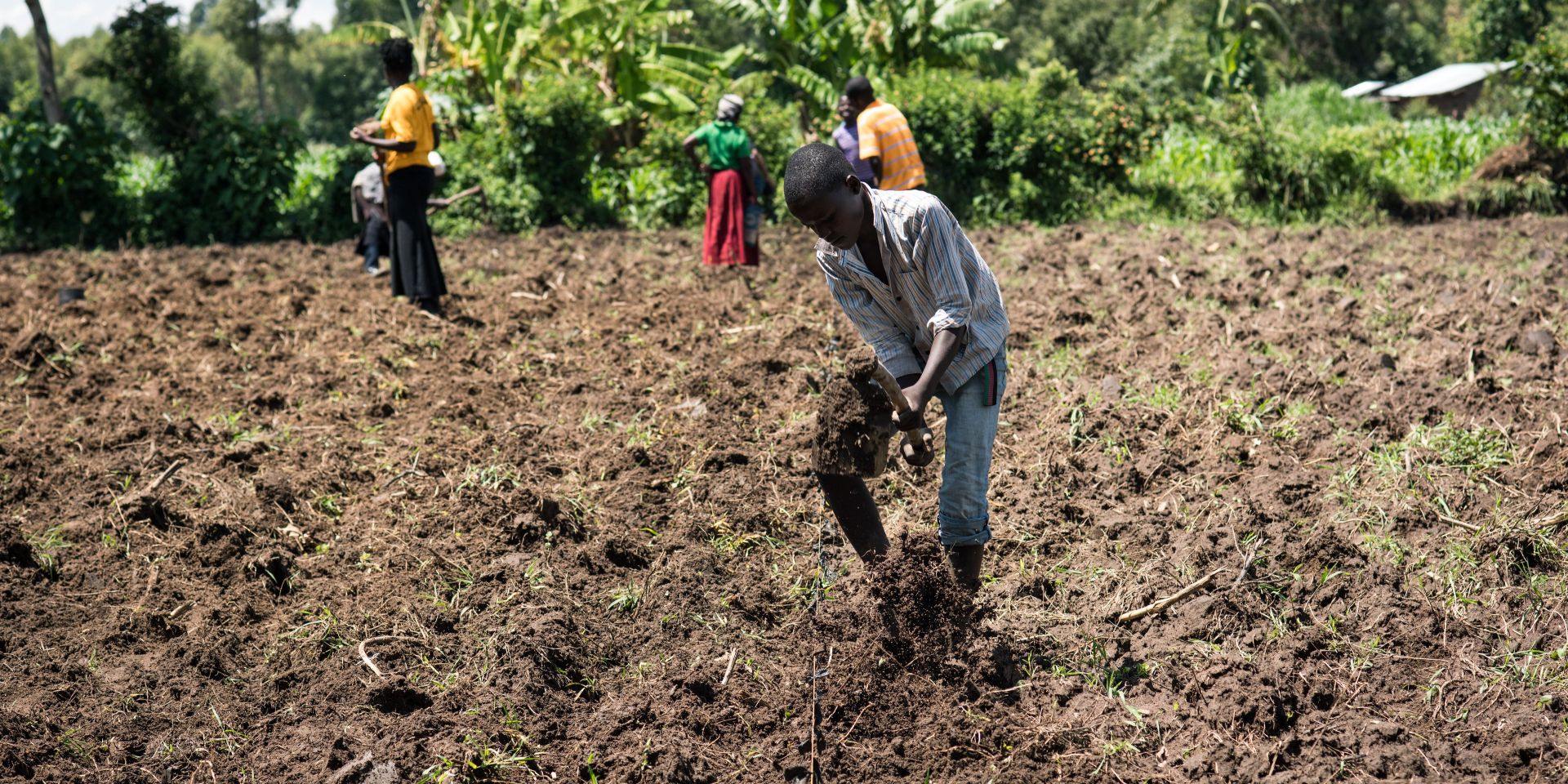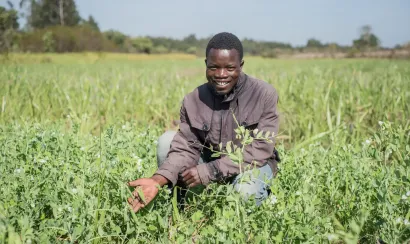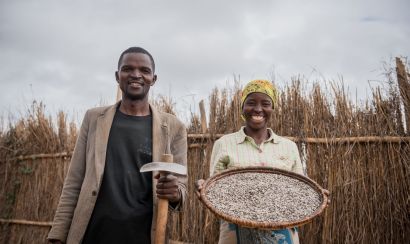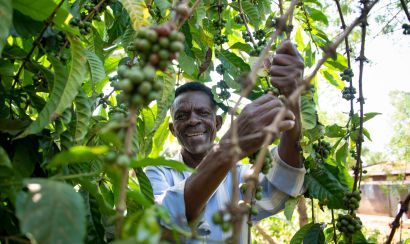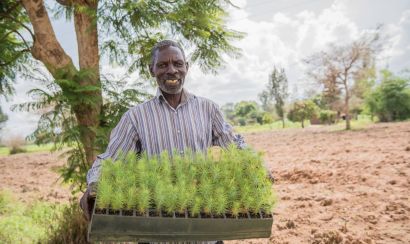We Asked: What Role Do Today’s Youth See For Themselves in Agribusiness?
Across East Africa, people are talking about the role of young people in agriculture.
Agriculture remains the backbone of East African economies. Yet many young people are looking for work in urban centers rather than following their parents into farming, creating a looming workforce gap.
To address this, many of our governments are actively encouraging youth engagement in agriculture. In 2016, Tanzania launched a national strategy for youth involvement. In 2017, Kenya unveiled a Youth in Agribusiness Strategy. And in 2018, Rwanda launched a campaign to promote “vibrant, youth-led agribusiness.”
So how do young people themselves feel about all this? To find out, we asked the children of One Acre Fund farmers in Kenya, Rwanda, and Tanzania to share their perspectives. Here’s what they said.
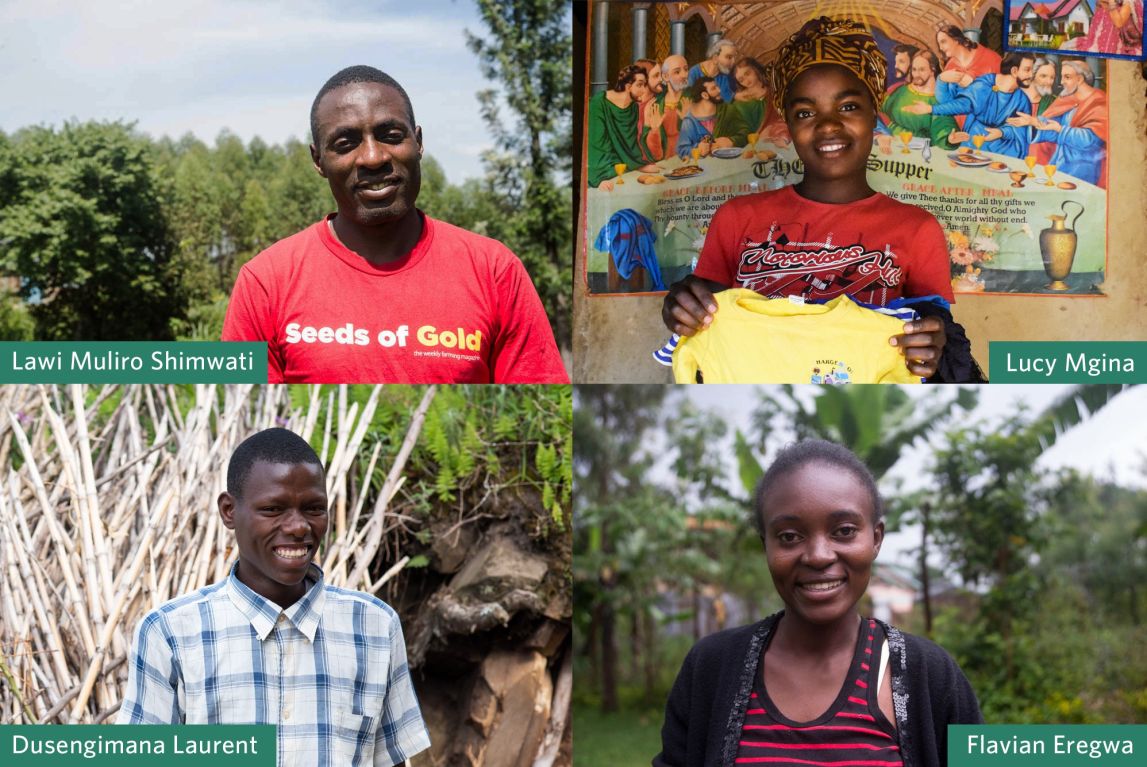
How do you feel about the nation’s youth going into farming?
Summary: Young people agree agriculture is important for development--but have mixed feelings about it as a career.
Dusengimana Laurent, 27, Rwanda: “Young people fear farming, but on my side, I am proud to be a farmer. If done well, it is a good career that will allow someone to be successful and meet the needs of their family. Personally, it will allow me to continue to take care of my parents now that they have reached the retirement age.”
Flavian Eregwa, 23, Kenya: “I do not think I’m interested in agriculture. I love business. We have a family business that I help my mother with when I’m home. We have a hotel that we run at the market. In business, one gets money every single day instead of waiting for months to harvest.”
Lawi Muliro Shimwati, 24, Kenya: “If you have a small portion of land, why waste time and money to go and purchase food when you can grow it. If you have money to engage in farming, you can sell and make more money...Also, it’s not guaranteed that young people will find employment after college. Work is very hard to come by. Young people graduate every year but are not being absorbed into the job market. They end up sitting idle, without work. God has blessed us with land. I think instead of wasting time going to big cities to look for work, they should engage in farming.
Lucy Mgina, 21, Tanzania: “I feel like agriculture is too difficult of a job. I do not farm, but I do not stay idle at home. I sell clothes in the village. But, agriculture is important for the country because we get food through farming. All of my family engages in agriculture. Even as a business person, at the end of the day, I spend my money on buying food.”
How do you see the future of agriculture where you live?
Summary: Our youth believe agriculture is important for the future of their countries, but see different ways that could play out.
Flavian Eregwa, 23, Kenya: “Ten years from now, if we can look for ways to mitigate the challenges that farmers face on a daily basis, such as the Fall Armyworm, then I think agriculture will expand even more. I doubt if there will be very many youths in agriculture. People have different interests, and today the youth want fast money. They will be investors, but I don’t think directly do farming.”
Dusengimana Laurent, 27, Rwanda: “In the future, I project that the yields in Rwanda will keep increasing. For example, when I was young, my dad used to harvest around 100 kgs of beans, but when I do grow beans on the same farm, I can harvest up to 300 kgs nowadays. And that’s a good indicator of increase in yields.”
Lawi Muliro Shimwati, 24, Kenya: “As far as this country is concerned, the population is always diversifying, and so in 10 years, I don’t think that things will be the same. The pieces of land that people plant will reduce because the population will have increased. Also the lifestyle of people will change. I do not think that they will be growing the same crops that they are growing right now. For example, if you look at the country right now, people are moving away from sugarcane. They are uprooting because there is no market.”
What advice do you have for youth?
Summary: Despite their reservations, young people consider it important for their peers to engage in agriculture.
Lawi Muliro Shimwati, 24, Kenya: “Agriculture is the backbone of this country. There is a slogan that says we eat to live and not live to eat. Those who have jobs should also invest in agriculture because when they do, then they will provide healthy food to their families and neighbors.”
Dusengimana Laurent, 27, Rwanda: “When young people finish school, they tell themselves ‘A literate young person like me can’t go back to the village to do farming, that’s not a job at my level.’ But this is poor mindset. In my life, I have always perceived a hoe as a powerful tool. For example, there are some of my peers who went to live in town after finishing school. They then come back two years later with nothing. On my side, I have achieved a lot as a farmer. And they always find out that their mindset was wrong when they come back to find that, me, who stayed in the village doing farming, has achieved a lot.”
